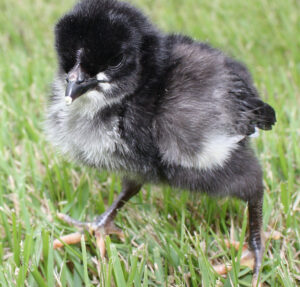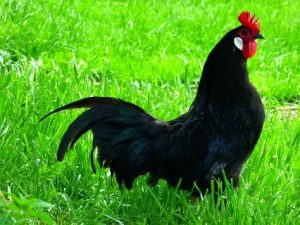Exploring the Enigmatic Augsburger Chicken
Welcome, poultry enthusiasts, to our deep dive into the fascinating world of Augsburger chickens! These captivating birds have a rich history and unique characteristics that make them a delight to raise and admire. Join us as we uncover everything you need to know about Augsburger chickens. Step back in time and journey through the history of Augsburger chickens. Originating in Augsburg, Germany, these birds have a storied past, revered for their hardiness and versatility. From their humble beginnings to their role in modern-day agriculture, Augsburger chickens have left an indelible mark on the poultry world.
Egg-citing Insights: Augsburger Eggs and Production
Size
Augsburger eggs are typically medium-sized.
Color
Augsburger eggs boast a beautiful light brown hue.
Production per year
Augsburger hens are moderate layers, producing approximately 150 to 200 eggs per year.
When do Augsburg chickens start laying eggs?
Augsburg hens typically begin laying eggs around 5 to 6 months of age
Augsburg Chicken Breed Characteristics
Temperament Traits: Understanding Augsburger Chicken Behavior
Get to know the temperament of Augsburger chickens! These birds are known for their calm and docile nature, making them wonderful companions for both novice and experienced poultry keepers alike. With proper handling and care, Augsburger chickens can become friendly and affectionate pets, enjoying human interaction and companionship.
Taming Augsburger Chickens: Patience and Gentle Handling
Taming Augsburger chickens is a rewarding experience that requires patience and understanding. Spend time with them regularly, offering treats and speaking to them in soothing tones. With gentle handling and positive reinforcement, Augsburger chickens can become trusting and affectionate companions.
Ideal Flock Size: Finding Harmony in Numbers
When it comes to flock size, quality over quantity is key with Augsburger chickens. Aim for a small flock of 4 to 6 birds to maintain a harmonious environment where each chicken can establish its place in the pecking order. This ensures minimal aggression and promotes a peaceful coexistence among the flock.
Space Requirements: Providing Room to Roam
Augsburger chickens appreciate ample space to roam and explore their surroundings. Provide at least 4 square feet of coop space per bird, along with access to a secure outdoor run or free-ranging area. This allows them to exhibit natural behaviors and maintain their physical and mental well-being.
Social Dynamics: Augsburger Chickens and Other Poultry
Augsburger chickens are generally sociable birds that get along well with other chickens. Introduce them to new flock members gradually and monitor their interactions to ensure a smooth integration. With proper introductions and supervision, Augsburger chickens can form strong bonds with their feathered companions.
Appearance Insights: The Distinctive Look of Augsburger Chickens
Feast your eyes on the striking appearance of Augsburger chickens! These birds are known for their compact size, rounded bodies, and distinctive feather patterns. With their vibrant plumage and friendly demeanor, Augsburger chickens are a joy to behold in any flock.
Feeding Augsburger Chickens: Nutritional Needs and Considerations
Chick Starter Feed: Fueling Growth from the Start: Birth to 8 Weeks
- Starter Feed: From the moment they emerge from their shells, Augsburger chicks rely on specially formulated chick starter feed to kickstart their growth journey. This feed is specifically designed to provide the essential nutrients needed for healthy development, including protein, vitamins, and minerals.
- Protein Content: With a protein content ranging from 18% to 20%, chick starter feed supports optimal muscle and tissue growth in these young chicks.
- Feeding Frequency: Augsburger chicks have tiny stomachs and high metabolic rates, meaning they need frequent access to feed to support their rapid growth. Keep chick starter feed available to them at all times, allowing them to eat as much as they need to satisfy their hunger and fuel their growing bodies. This ad libitum feeding approach ensures that they have the nutrients they need to thrive without any restrictions.
- Supplemental Heat: During their early weeks of life, Augsburger chicks require a warm and cozy environment to thrive. Providing supplemental heat, such as a heat lamp or brooder, helps maintain their body temperature and aids in digestion. Consistent warmth is crucial for healthy growth and development, preventing chilling and promoting overall vitality in these young chicks.
- Fresh Water: In addition to their feed, ensure that fresh, clean water is readily available to Augsburger chicks at all times. Use shallow waterers to prevent accidental drowning, and change the water regularly to maintain cleanliness. Hydration is essential for their overall health and well-being, supporting proper digestion and nutrient absorption.
Transitioning to Grower Feed: Supporting Continued Growth: 8 Weeks to Point of Lay
- Grower Feed Introduction: Around 8 weeks of age, as Augsburger chicks continue to grow and mature, it’s time to transition them to grower feed. This feed contains slightly lower levels of protein compared to chick starter feed but still provides the essential nutrients needed for continued growth and development.
- Protein Content: Opt for a grower feed with a protein content ranging from 16% to 18%. This balanced protein level supports steady growth in young Augsburger chickens without promoting excessive weight gain.
- Feeding Schedule: Offer measured quantities of grower feed to your Augsburger chicks, ensuring they have enough to eat without overfeeding. Monitor their appetite and growth closely, adjusting feeding amounts as needed to prevent wastage and maintain healthy growth. A balanced diet supports their overall health and well-being, setting the stage for successful egg production in the future.
- Healthy Treats: Introduce occasional treats such as finely chopped greens, fruits, or mealworms to provide enrichment and variety to your Augsburger chickens’ diet. These treats offer additional nutrients and help keep your chickens happy and content.
Preparing for Egg Laying: Point of Lay Onward
- Layer Feed Transition: As Augsburger chickens approach the point of lay, typically around 18 to 20 weeks of age, it’s time to transition them to layer feed. Layer feed is specially formulated to provide the essential nutrients needed for egg production, including higher levels of calcium for strong, healthy eggshells.
- Calcium Supplementation: Alongside layer feed, provide free-choice calcium supplements such as crushed oyster shells or limestone grit to ensure they have access to the extra calcium needed for eggshell formation.
- Feeding Routine: Maintain a consistent feeding routine, offering layer feed and calcium supplements to your Augsburger hens regularly. Keep a close eye on their egg production and adjust feed quantities as needed to support optimal laying performance.
By providing a well-balanced and nutritious diet tailored to each stage of their development, you can support the healthy growth, development, and eventual egg-laying success of your Augsburger chickens. Consistent access to quality feed, fresh water, and appropriate supplements is key to their overall health and productivity throughout their lives.
Strengths and Weaknesses: Assessing the Augsburger Chicken
Every chicken breed has its unique strengths and weaknesses, and Augsburger chickens are no exception. Their calm temperament, moderate egg production, and sociable nature make them excellent additions to any flock. However, their smaller size may make them more vulnerable to predators, so proper housing and protection are essential.
Celebrating the Charisma of Augsburger Chickens
In conclusion, Augsburger chickens are a breed steeped in history and charm, offering both beauty and utility to poultry enthusiasts around the world. Whether admired for their striking appearance, gentle temperament, or reliable egg-laying abilities, Augsburger chickens continue to captivate and delight those who have the pleasure of raising them. With proper care, understanding, and appreciation for their unique qualities, Augsburger chickens are sure to bring joy and companionship to any flock.


